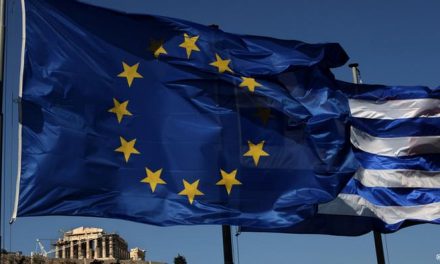By Laurie Laird, Forbes
In a saga punctuated by deadlines, there has been surprisingly little fear associated with the next target date for fiscally-challenged Greece – the August 20 deadline to remit $3.5 billion to the European Central Bank.
With preliminary negotiations on a third bailout underway, investors seem to believe that creditors will turn on the financial tap. Those very real considerations of Grexit last month now seem like a dream sequence.
But with Athens and its creditors last week unable to agree even on when discussions started, the auspices for a smooth conclusion to the funding talks are not encouraging.
Remember, Greece failed to convince lenders to unlock $7.2 billion in unused bailout money after nearly five months of negotiations between February and July. Discussions over a three-year $95 billion package might prove to be even trickier.
In the meantime, Greece is surviving on a controversial $7.7 billion bridge loan, extended through a European Union fund. But most of that money left Greek coffers as soon as it entered, earmarked for a payment to the European Central Bank, and to clear arrears racked up with the International Monetary Fund.
That leaves Greece scrambling to scrape together the finances to make good on the next remittance to the ECB. The vehicle behind the last bridge loan, the European Financial Stability Mechanism, is believed to have another $8 billion or so in available funding, but releasing that cash could be challenging. Non-euro members chaffed at contributing to the July disbursement, not least because the UK had gained a guarantee from the European Commission that the EFSM – which draws upon guarantees from non-euro zone nations – would not be used to prop up a euro-zone country. With British attitudes toward the European Union ambiguous at best, another contribution to Greece could lead to a serious rupture with the EU.
And the UK may not be alone in protesting further short-term cash for Greece. Last week, the IMF warned that it will refrain from contributing to a new bailout, at least until fellow creditors concede some form of debt relief. The IMF is also demanding that Greece go further in implementing serious economic reform before resuming lending.
Without the imprimatur of the IMF, it may be difficult for euro zone members to approve a bailout – assuming Greece and its creditors strike a deal. Meeting in an emergency session last month, the German Bundestag agreed only to begin negotiations with Greece. A comprehensive deal must past the German parliament again, along with legislatures in a number of other European states.
It may be that the stance of the IMF forces Greek creditors to accelerate consideration of debt relief, although it’s not clear that a bailout that restructures Greek debt may be any more palatable to German lawmakers than a package that excludes the IMF.
Meanwhile, European leaders have taken a big step since the beginning of the year in accepting the possibility of a Greek exit from the euro. Now that Plan B’s have been discussed publicly, there is no way of pretending that the euro is unbreakable. Far from nearing the conclusion of this Greek drama, the euro zone may have merely entered the second act.



















